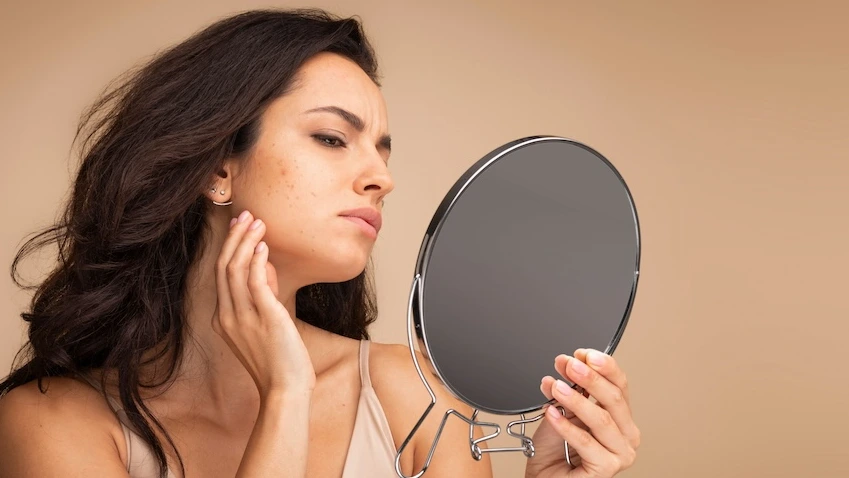Moisture Solutions: How to Combat Dry Skin from Retinol Use

EXTRA 5% OFF ON PREPAID

Retinol has become a staple in many skincare routines, thanks to its numerous benefits for the skin. From reducing the appearance of fine lines and wrinkles to improving skin texture and tone, retinol is often hailed as a miracle ingredient. However, one common side effect that many retinol users experience is dry skin. In this tutorial, we will explore the causes of dry skin from retinol use and provide effective moisture solutions to combat this issue.
Retinol, a derivative of vitamin A, is known for its ability to promote cell turnover and stimulate collagen production. These properties make it a powerful ingredient for improving the overall health and appearance of the skin. However, retinol can also disrupt the skin’s moisture barrier, leading to dryness.
The skin’s moisture barrier acts as a protective barrier, preventing water loss and maintaining hydration. When retinol is introduced to the skin, it can cause the moisture barrier to become compromised, resulting in increased transepidermal water loss and dryness.
Check out this blog if Encapsulated Retinol Serum or Traditional Retinol is better for your skin
To minimize the risk of dryness from retinol use, it is essential to start with a low concentration of retinol and gradually increase usage over time. This allows the skin to acclimate to the ingredient and reduces the likelihood of experiencing severe dryness.
Patch testing is another crucial step in preparing your skin for retinol. Apply a small amount of the product to a discreet area of your skin and monitor for any adverse reactions. If no irritation occurs after 24 hours, you can proceed with applying retinol to your entire face.
Before applying retinol, it is important to properly cleanse and moisturize your skin. Use a gentle cleanser that does not strip away the skin’s natural oils. Follow up with a hydrating moisturizer to provide a protective barrier and lock in moisture.
For finding the Perfect Retinol Dosage and Frequency check out this Comprehensive Tutorial
To combat dry skin caused by retinol use, it is essential to adopt a moisture-focused skincare routine. This includes using gentle cleansers that do not further strip the skin of its natural oils. Harsh exfoliants should be avoided, as they can exacerbate dryness and irritation.
Hydrating moisturizers and serums are key in replenishing moisture to the skin. Look for products that contain ingredients like hyaluronic acid, ceramides, and glycerin, as these help attract and retain moisture. Applying these products immediately after cleansing and before applying retinol can help create a protective barrier and minimize dryness.
In addition to skincare products, there are other measures you can take to combat dry skin from retinol use. Using a humidifier in your bedroom can add moisture to the air and prevent excessive dryness. This is especially beneficial during the winter months when the air tends to be drier.
Facial oils can also be incorporated into your skincare routine to provide an extra layer of hydration. Look for oils that are non-comedogenic and suitable for your skin type. Applying a few drops of facial oil after moisturizing can help seal in moisture and prevent water loss.
Unlock the secrets here on how to apply dosage, and nighttime tips.
Lastly, adjusting the frequency of retinol usage can also help minimize dryness. If you find that your skin is becoming excessively dry, consider reducing the frequency of retinol application. This allows your skin to recover and replenish its moisture levels.
While retinol is a powerful ingredient for improving the overall health and appearance of the skin, it can also cause dryness. By understanding the effects of retinol on the skin and adopting a moisture-focused skincare routine, you can combat dry skin and enjoy the benefits of this popular ingredient. Remember to experiment with different moisturizing products and techniques to find what works best for your skin. If severe dryness persists, it is always recommended to consult with a dermatologist for further guidance and assistance in finding effective moisture solutions for retinol users.